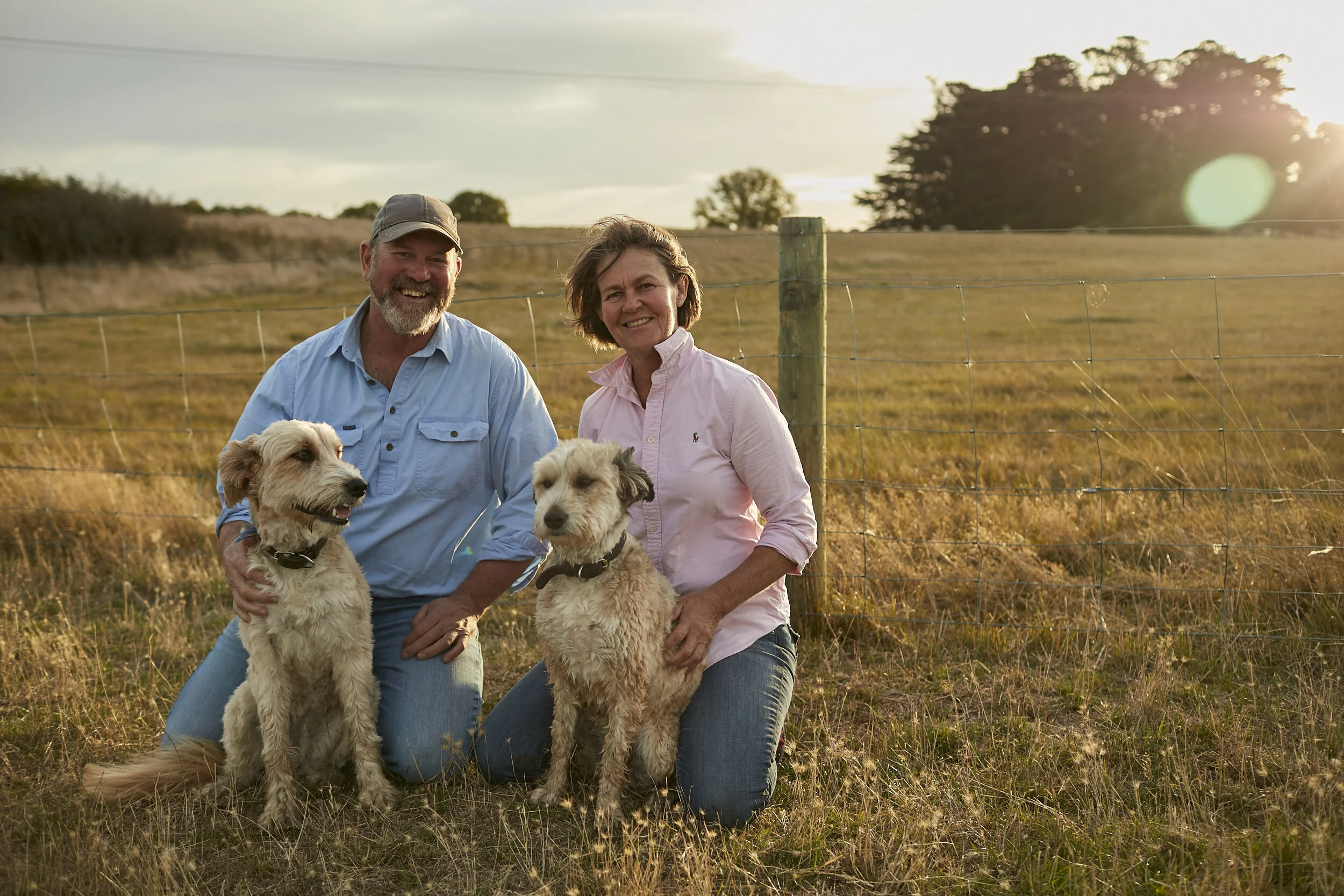
At Herbert & Co we love everything about food — from paddock to plate.
Through our honey bees we are committed to supporting ethical and sustainable food production — starting on our back doorstep in northern Tasmania. We supply European honey bees for crop pollination and seed production, produce small batches of raw, cold-extracted honey, and create a limited range of thoughtfully curated natural beeswax products.
WE ARE PASSIONATE ABOUT FOOD AND FIBRE PRODUCTION. OUR ORIGINS ARE IN AGRICULTURE — IT IS IN OUR BLOOD AND AT THE VERY CORE OF OUR BEING.
We purchased our first four bee hives in 2018 after a trip to North America with friends, to visit our son Sam and his friend Hugh on their gap ‘years’. It was during this trip we first became aware of the decline in the honey bee population, due to Varroa mite (Varroa destructor), which is threatening global food security. The following year we returned to visit family and friends in Oregon, where we learned more about the plight of bees and the challenges facing farmers who rely on bees as pollinators in the northern hemisphere, where Varroa mite is taking hold. The good news is that Tasmania currently remains free of the tiny mite that is decimating the world’s honey bees. We even export millions upon millions of precious bees to North America every year to replenish stocks.
The seeds of an idea were sown during our travels and Herbert & Co Honey was conceived. We currently have 34 hives and plan to continue to grow our business.
Through Herbert & Co we are focussing on providing crop pollination services to farmers across northern Tasmania. In the future we are keen to work alongside other Tasmanian beekeepers to export live bees to countries where honey bee populations are declining. In the meantime, it’s all about learning to manage our hives and keep our bees happy and healthy while supporting the vital food supply chain here in Tasmania.
MEET CAT
Cat grew up on a hobby farm in NSW and after two-years travelling throughout the northern hemisphere (milking sheep, pulling beers and teaching young American summer campers to ride horses) she returned to study equine science, followed by agricultural science and secondary education at Charles Sturt University (CSU), Wagga Wagga. It was here she met Ian.
MEET IAN
Ian grew up in a mixed-farming enterprise in central west NSW, surrounded by crops, cattle and sheep. After a start studying agricultural science at the University of New in England in northern NSW he headed to the cotton fields, where he managed the irrigation for thousands of hectares of cotton. He eventually headed back to the books, joining Cat at CSU, Wagga Wagga studying agricultural science.
Since graduating from CSU Cat and Ian have been involved in a diverse range of roles. Ian spent time as an agronomist before a short spell on the family farm, then heading to Tasmania, managing a large mixed farming enterprise and later moving into roles in irrigation development, crop research and now manages a large rural supply business, where he focuses on helping farmers successfully manage their diverse enterprises.
In the meantime Cat focused her energies on agricultural communications, carving out a niche role working with researchers across industry sectors to share their research outcomes in a way that would encourage adoption of new technologies and management methods.
Cat also authored a series of award-winning non-fiction books for primary schools on Australia’s food and fibre industries, including The Story of Honey. Cat continues to work in agricultural education and extension, and is passionate about sharing the truth about how our food and fibre is produced for consumers around the world, through stories, educational materials and social media.



